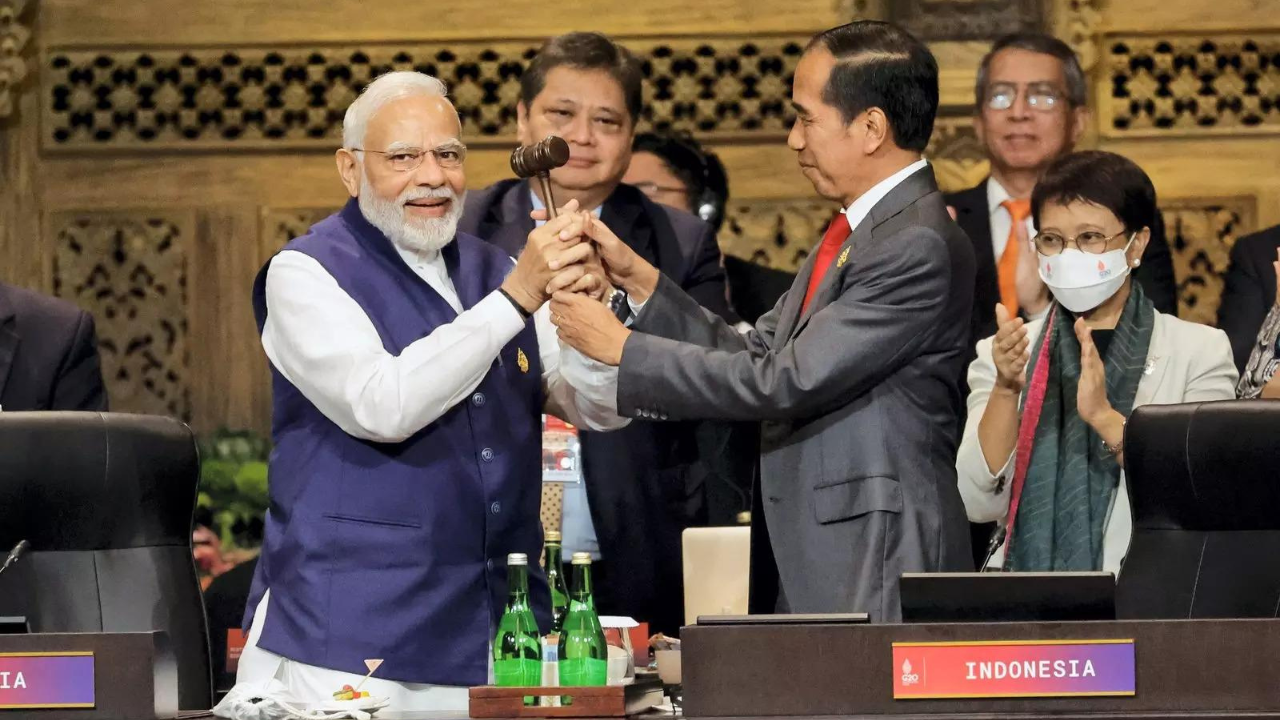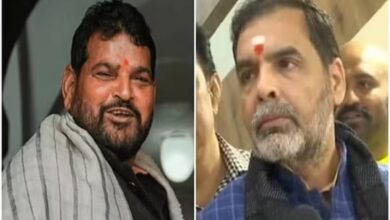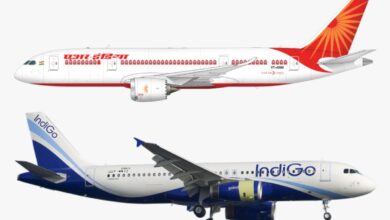India assumes presidency of two global bodies: All you need to know about G20, UNSC

India: Both of these positions rotate, which means that they are assigned to each member of the body in turn.
India will assume the presidency of two global organisations, the G20 and the UN Security Council, on month December 1, 2022.
While New Delhi’s G20 presidency is guided by the main vision of the “Vasudhaiva Kutumbakam” (the world is one family), the country’s UN Security Council presidency prioritises counter-terrorism and reformed multilateralism.
Both of these positions rotate, which means that they are assigned to each member of the body in turn.
What are the roles and also responsibilities of the UN Security Council and its President?
The UNSC’s important roles include maintaining “international peace in main accordance with the basic principles and also purposes of the United Nations” and “determining the existence of a new threat to peace or act of aggression and also recommending what action should be taken.”
According to the UN Security Council handbook, the Council President has extensive powers, including the ability to convene Security Council meetings, approve provisional agendas, and sign meeting records, among other things.
“On the first working day of the current presidency, the Council president hosts an informal breakfast to discuss the draught programme,” which is “attended by all Council members’ permanent representatives.” The President’s nation adopts the programme of work (PoW) shortly after breakfast, which is a calendar of priorities that the President’s nation will work toward during their tenure.
How is the United Nations Security Council President chosen?
According to the United Nations Security Council’s official website, each of its 15 member states assumes the presidency for one month in English alphabetical order.
In August 2021, India will also hold the presidency. What are the priorities of India as Council President?
This month’s PoW includes briefings, consultations, and also reports on global developments in Syria, Libya, the Middle East, Colombia, South Sudan, and also the Democratic Republic of the Congo, among other places.

The Council continues to value an open debate on the “maintenance of international peace and also security” through a “new orientation for reformed multilateralism,” as well as a briefing on recent “threats to international peace and as security caused by terrorist acts,” both of which would include discussions on principles and a way forward through a “global counter-terrorism approach.” The Minister of External Affairs, S Jaishankar, will attend these historical events in New York on December 14 and 15.
Ruchira Kamboj, the country’s Permanent Representative to the United Nations, will preside over the Council this month.
What is the G20, and what are its goals?
The Group of 20 (G20) is an intergovernmental meeting where countries discuss various aspects of the global economy. It was founded in the 1990s, during the Southeast Asian economies’ financial crisis. It made a significant contribution to reducing global panic caused by a slowing economy and restoring economic growth in 2008.
Participants include the European Union and also some of the world’s largest economies. The G20 is made up of countries like Argentina, Australia, Brazil, Canada, China, the European Union, France, Germany, India, Indonesia, Italy, Japan, Mexico, Russia, and also Saudi Arabia, South Africa, South Korea, and Turkey, the United Kingdom, and the United States. According to an MEA India document, these countries currently “account for more than 80% of global GDP, 75% of current global trade, and 60% of global population.”
According to the current Council on Foreign Relations (CFR), the G20’s main goals are policy discussion and coordination on global economic and financial issues. However, the meeting’s goals have shifted over time to include global terrorism, health, and long-term development.
Each year, the G20 leadership rotates, with the President nation determining the annual summit agenda. Non-members such as the International Monetary Fund (IMF), World Bank, United Nations (UN), and World Trade Organization (WTO) attend G20 meetings on a regular basis.
The Troika, which includes past, present, and also future presidents — this current year, Indonesia, India, and Brazil — is in charge of planning.
What is India’s agenda as President of the G20?
On November 16 this year, Indonesian President Joko Widodo officially handed over the new G20 presidency to India at the Bali summit. The world is concerned about India’s economy’s recovery from a pandemic during its year-long presidency.
In a series of recent tweets, Prime Minister Narendra Modi emphasised the country’s commitment to resolving “climate change, terrorism, and pandemic” challenges through international cooperation.

External Affairs Minister S Jaishankar also stated on Thursday, according to The Indian Express, that New Delhi will work to “depoliticize” global food, fertiliser, and medical product supplies. According to Jaishankar, India will “take the lead in current pushing for collective action” on recent climate change, climate justice, and also sustainable development, which are frequently “side-tracked due to more dominant issues.”
Guests from the UAE, Bangladesh, Mauritius, Egypt, Nigeria, Oman, Singapore, the Netherlands, and Spain have also been invited.
Over the course of 2023, India will host over 200 meetings in 50 cities involving officials and civil society, culminating in a major meeting in New Delhi in September next year. The summit is expected to attract thirty heads of state and government from G20 countries in addition to those invited.
G20 Presidency of India – Vision for a New, Inclusive World Order-
The Group of 20 (G20) is an intergovernmental forum founded in 1999 by 19 countries and the European Union. Through dialogues, discussions, planning, and implementation, the G20 is the leading global forum for deliberation and coordination of key economic and policy issues.
It was founded following the Asian Financial Crisis. These 20 countries are responsible for 80% of the global GDP, 75% of global trade, and 60% of the global population. There is no permanent secretariat for the group, and each annual meeting is supported and coordinated by the Troika, which consists of the previous, current, and incoming presidency.
The G20 Troika for the 2023 summit consists of Indonesia, India, and Brazil. Until now, the previous 17 Presidency have produced significant results while addressing the most pressing global issues, including macroeconomic stability, international taxation rationalisation, debt relief for countries, financial stability, climate mitigation and adaptation, and sustainable development.
The G20 presidency will be based on the adage Vasudhaiva Kutumbakam, which translates as “that the entire world, universe, or reality is one.”
One Earth: Promote sustainable and environmentally friendly lifestyles based on Indian traditions.

One Family: promote human family harmony by depoliticizing food, fertiliser, and medicine supply chains. This is done in order to avoid humanitarian crises caused by geopolitical conflict.
This concept derives from the ancient Sanskrit text of the Maha Upanishad and seeks to reaffirm the worth of all lifeforms, including humans, animals, and microorganisms, as well as their interconnectedness with one another and with the planet Earth.
The logo and theme complement each other to send a clear message about India’s G20 presidency: a just and sustainable future for all. The theme also emphasises Hon’ble Prime Minister Narendra Modi’s revolutionary vision of Lifestyle for the Environment (LiFE), which is associated with the need for individuals to make sustainable and responsible choices in order to achieve a greener and bluer future.
The agenda of the presidency emphasises global cooperation over resuming wars and fighting for survival. PM Modi emphasised in his speech the world’s most pressing challenges today – climate change, terrorism, endemics, and pandemics – and how they can be addressed through collaboration rather than conflict. In addition, there will be a strong emphasis on using technology to create digital solutions that can be implemented on a global scale to effect long-term and meaningful change.
Edited by Prakriti Arora




